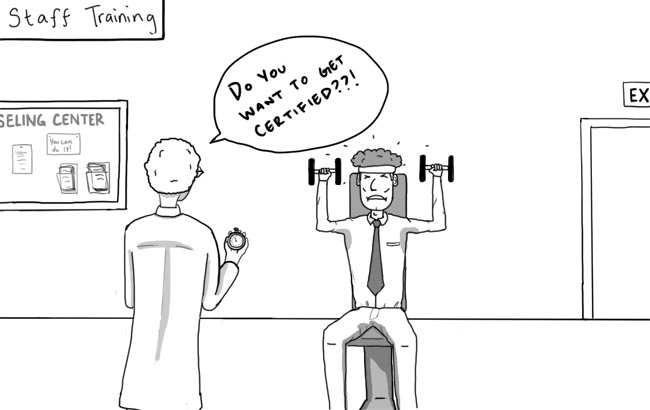Students’ expectations of services from the College of William and Mary Counseling Center do not seem to match up with the actual services that the center provides, which can contribute to a stigma about the ability of the center to provide meaningful care for the College’s students.
A common concern associated with the Counseling Center is that it does not have the resources to treat students effectively. However, the misconception lies in what services the center can effectively provide. Students may feel afraid that they will be referred to off-campus services because they have problems that are too difficult for the Counseling Center to handle, when in actuality students are referred off campus to receive the best service they can receive for their specific problem.
The role of the Counseling Center should be one which helps match students with a service that best fits their needs, and it should clarify that role to the student body. Students with serious cases of mental illness should be referred to licensed specialists. Given the workload of the licensed staff at the center, some students requiring more serious attention may have to be helped by a specialist off campus so they can receive better services. That should be made clear from the beginning.
The two unlicensed staff therapists should also be encouraged to achieve licensure. Not only would more licensed staff members elicit more confidence in services from students, but it would also help to alleviate the administrative duties of managing the training program. If the staff therapists were licensed, they could assist the licensed psychologists with training the interns and practicum students who handle the majority of clinical service appointments at the center. If the two staff therapists are unable to attain their licenses after multiple attempts, the center should see this as a red flag that warrants its consideration into the ability of these employees to provide students with the best possible care.
Additionally, the Counseling Center should be highly critical and aware of how its uses its donations to ensure that it offers high quality services. Donations should primarily focus on building a strong staff that includes more licensed psychologists. New initiatives to offer more diverse services to students, such as an after-hours call center and online portals, should be secondary. A fully-trained staff should be the primary concern of the center to ensure that it is providing students with high quality services that are not hampered by administrative busywork. Highly-trained specialists should not be burdened by administrative work when their services are so badly needed. While new initiatives are important and forward-thinking, the Center needs to remain critical of how its uses its funding to be the most productive it can be.
Lastly, this kind of critical evaluation of resources needs to be consistent across time and campus-specific circumstances. Conversations of the quality of resources within the Center should not only develop in response to campus tragedies: The center should be critically evaluating its use of funding for different initiatives constantly to maintain its usefulness on campus.

